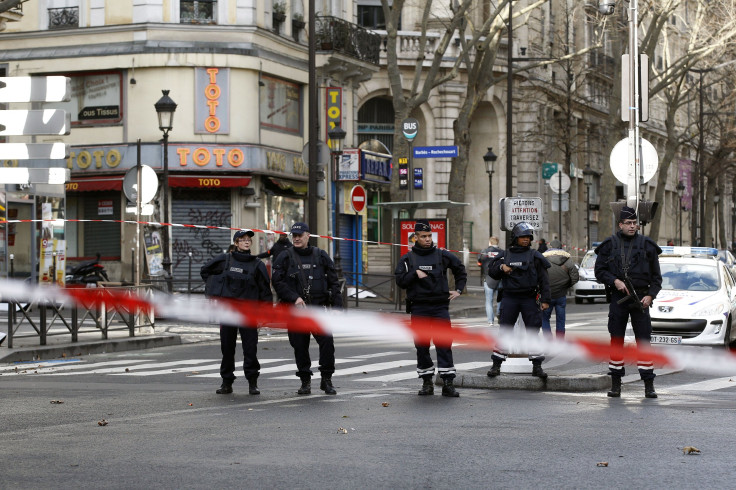Paris Police Station Attacker Lived In A Shelter For Asylum-Seekers In Germany, Drew ISIS Symbol On Wall

The man who tried to attack a police station in Paris Thursday had lived in a shelter for asylum-seekers in Germany, police officials said, according to reports. The building in the western town of Recklinghausen was searched by German police officials Saturday and officials said they did not find any evidence for further attacks at the location.
The attacker's link to a refugee shelter is expected to further fuel an ongoing debate on whether refugees from the Middle East — who are fleeing years of conflict in their home countries — pose a threat to Europe as the continent continues to receive thousands of refugees each month. Earlier this month, it was reported that hundreds of men — reportedly suspected to be of Middle Eastern and North African descent — sexually assaulted women in the German city of Cologne over New Year's Eve.
Although German police did not say if the Paris attacker was registered as an asylum-seeker, Agence France-Presse (AFP) reported that he was, citing a source. The man, who was identified by his family members to police officials, was shot dead after he stormed a police station with a meat cleaver and a fake suicide vest. The attack occurred exactly a year after terror attacks in Paris that killed 17, including 12 at the office of French tabloid newspaper Charlie Hebdo.
The AFP report said that the man’s family identified him as a Tunisian named Tarek Belgacem. However, earlier reports had identified him as Sallah Ali from Morocco. According to a BBC report, it was not clear if the man had entered Germany as a refugee. A piece of paper was found on his body where he “pledged allegiance” to the Islamic State group, commonly known as ISIS. He had also reportedly vowed to take revenge for the “attacks in Syria” and had drawn a symbol of ISIS on a wall of a room at the shelter.
The BBC report added that he had several encounters with French and German authorities, and had claimed on separate occasions to be Moroccan, Tunisian, Syrian and Georgian. He was also reportedly arrested for a robbery in France in 2013.
The incident also raises questions about the security procedures followed to check the background of asylum-seekers amid claims from ISIS that some of its fighters may have entered Europe posing as refugees.
Following the Cologne incidents, German Chancellor Angela Merkel's Christian Democratic Party on Friday called for stricter penalties against asylum-seekers committing crimes. A draft paper from the party suggested that asylum-seekers who have been sentenced to prison or probation should not be eligible to apply for asylum.
Germany’s interior ministry reportedly said Friday that officials have so far identified 31 people in connection to the Cologne assaults, of whom 18 were asylum-seekers. However, a spokesman for the ministry said that the suspects were detained for theft and assault, and added that they were not suspected of committing the sexual attacks.
© Copyright IBTimes 2024. All rights reserved.












